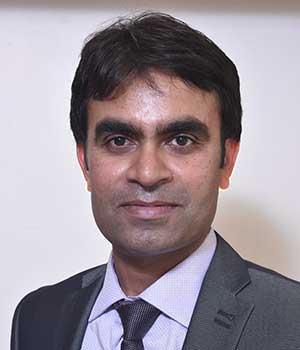'Since the Covid virus has a tendency to mutate, we can continue to expect new variants of the virus to emerge and keep circulating and recirculating in the communities.'

It was on the 11th of March 2020 that WHO Director-General Dr Tedros Adhanom Ghebreyesus declared 'the novel coronavirus -- COVID-19 -- outbreak as a global pandemic'.
At the press conference, Dr Ghebreyesus said the number of cases outside China increased 13-fold and the number of countries with cases increased threefold in two weeks.
After two-and-a-half years, according to the data collected by Bloomberg, more than 12.4 billion vaccine doses have been administered across 184 countries; around 8.46 million doses a day and 159 shots for every 100 people worldwide.
Has the time come for tWHO to declare the COVID-19 outbreak as an endemic?
According to Dr Chandrakant Lahariya, an infectious diseases specialist, vaccine and public health and policy expert, that moment has not arrived yet.
Though he argues that the world is still in the midst of the pandemic, the disease can be considered endemic in India as well as in some other countries which have experienced high transmission and achieved high coverage with at least two shots of COVID-19 vaccines in the 18+ years population.
Dr Lahariya is the lead author of book Till we win: India's Fight Against the Covid-19 Pandemic along with Dr Randeep Guleria of the All India Institute of Medical Sciences, New Delhi and Dr Gagandeep Kang of the Christian Medical College.
"There need not be any emergency provisions like making masks compulsory or restrictions of any kind," Dr Lahariya tells Rediff.com's Shobha Warrier in the first of a two-part interview.

In your opinion piece in The Hindu you wrote that COVID-19 has become endemic. What signals are you getting that suggest it has become endemic?
What we need to understand is that outbreaks, epidemic and pandemic merely reflect the geographical distribution, more so for the diseases that are either new or for which the immunity of the population is low.
COVID-19 started as an outbreak in Wuhan in a localised area and then spread to multiple countries between December 31, 2019 to January-February 2020. Thus, an outbreak became an epidemic.
Finally, it was declared a pandemic based on the geographical spread of the disease, and not linked to the severity of the disease.
The disease can be mild, but when it is widespread, it will be a pandemic. The disease could be very severe, but if it is localised, it will still be an outbreak.
When the pathogen is new, it becomes a public health concern and that's why -- amongst a few other reasons -- the disease is described as epidemic or pandemic outbreaks.
That's when people are susceptible as they have no prior immunity to the disease, and most of the time, the severity of the outcome of the disease is also unknown. That was the case with COVID-19 or SARS-coronavirus 2.

But now, the world knows a lot more about the COVID-19 virus....
Yes, in the case of COVID-19, what has changed in the last 30 months is that we now have a better understanding of the virus and the disease.
Also, people have developed immunity either through natural infection or by vaccination. The widespread vaccination across many countries around the world has reduced the impact of the infection.
So, now we are in a scenario where the disease is still continued to be widespread, but the outcome is largely predictable. We know about the population groups which are likely to have poor outcome -- the unvaccinated or partially vaccinated 60+ population or those with co-morbidities.
This is the change that has taken place before the pandemic first began, and now.
Is this the case only in India or globally?
Not just in India, it is the same in many parts of the world except in Africa.
But we also know that the disease will not go away as the virus would stay amongst the people, for long, possibly very long.
Since the SARS Covid virus has a tendency to mutate, we can continue to expect new variants of the virus to emerge and keep circulating and recirculating in the communities.
There will be a rise and fall of cases, but we can't expect the virus to disappear altogether.

Would you say it will be part of our lives like TB or measles or dengue?
Yes, TB, dengue, etc have become part of our lives. We can reduce the risk of these conditions through preventive measures, but can't hope for a zero case situation.
Another difference between an endemic and the pandemic is in its socio-economic impact. In the case of an endemic, the social and economic impact will be far lower.
So, when a disease becomes a limited public health concern and not a major challenge for the general population, you can say, it has become an endemic.
For example, dengue is an endemic most of the places, but every 3-4 years, there are cycles of outbreaks and epidemics.
Endemic also means the continuous transmission of a particular disease with limited public health impact.
That's why I say in India, COVID-19 can be considered endemic because while the transmission is going on, the social and economic impact of the infection is not the same as it was when it first appeared.
Also you need to remember that when a disease becomes endemic, it does not mean that the government does not need to do anything. The governments at both national and state levels have to take measures to prevent the spread.
 IMAGE: Dr Chandrakant Lahariya. Photograph: Kind courtesy Dr Chandrakant Lahariya
IMAGE: Dr Chandrakant Lahariya. Photograph: Kind courtesy Dr Chandrakant LahariyaWhen a disease becomes an endemic from being a pandemic, how should the approach to the disease change? Both on the government's side and also from the public...
One of the key differences is that all the preventive interventions can be integrated with the general health care services. It would not require excessive or high priority attention.
There need not be any emergency provisions like making masks compulsory or restrictions of any kind.
At that stage, people should be informed about the risk and the citizen need to do self-assessment of their risk and take preventive measures.
Feature Presentation: Ashish Narsale/Rediff.com










